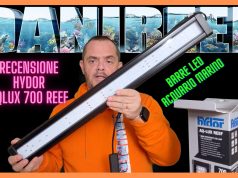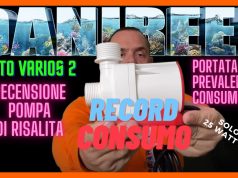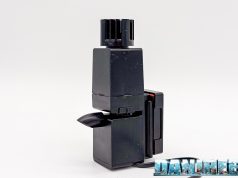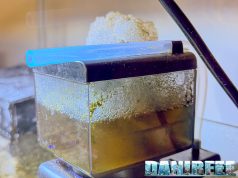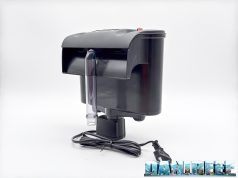Our comments
As we are usual to remember an adjustable pump is the best thing you can have in sump, for a lot of reasons. The possibility to change the power to make it adapt to the conditions of the aquarium is the best.
For example, when you change the water in aquarium without a bulkhead in sump, you can decrease the the flow rate of the pump in order to have less exchange between aquarium and sump. In this way you can have less water in aquarium without turning off the returning pump. In fact, lowering the flow rate of the pump the level in sump tends to increase while the one in aquarium tends to decrease, so taking out water from the aquarium you don’t risk to leave the pumps dry.
Unluckily if you have a sump with bulkhead this trick isn’t possible.
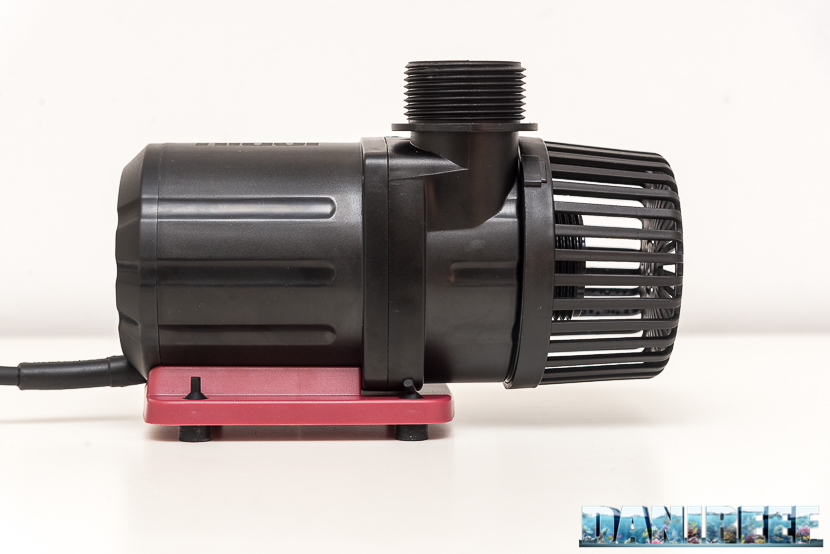
The page of the conclusions is really dense, also thanks to the comparison that we did with similar pumps we’ve already tested.
The comparison with other pumps
The chart you’re going to see it’s very interesting. It’s the result from the values obtained from other pumps, Eheim, Tunze, Sicce, Corallinea, Waveline, Ecotech Marine and Rossmont, that you can check anytime on our page of reviews. They’re ordered by the reference value of the pump, that’s the product of the flow rate for the hydraulic head divided by two. In this way the area between the two sizes is obtained.

In the chart we reported the values of some pump tested here on DaniReef. In particular the last five variable flow pumps, the Tunze 1073.050 (review), the Corallinea BQ5000 (review), the Waveline DC6000 (review), the Vectra M1 (review) and the Rossmont Riser 3200 (review).
Form the chart is visible that economically speaking, so the relationship flow rate/euro, the Hydor is always the most convenient, followed by the Rossmont Riser 3200 and the chinese Corallinea BQ5000. For what concerns the technical efficiency, considering only the maximum values, the Waveline DC6000 wins very little against this Seltz D6000. Then, se the couple of values that you need matches with this pump you just don’t have any excuses, it’s practically first for technical and economic efficiency that we tried. And, in addiction, it’s immediately adjustable, even if not sophisticatedly.
Relationship with the declared data
Now let’s see the relationship with the data declared from the builder.
Hydraulic head
| pump | hydraulic head | measurement | difference |
| Hydor Seltz D6000 | 420 cm | 450 cm | + 7 % |
The maximum hydraulic head has a noticeable gap, but to our advantage.
Flow rate
| pump | flow rate | measurement | difference |
| Hydor Seltz D6000 | 6.000 l/h | 4.194 l/h | – 30 % |
The gap between flow rate measured and declared is close to 30%, a result, unluckily, in average with the other options.
Energy consumption
| pump | consumption | measurement | difference |
| Hydor Seltz D6000 | 60 w | 53 w | – 12 % |
The energy consuption is lower than 12%, more or less. Best for our aquarists.
Closeness to the declared data
Finally, as a term of comparison, we can use a match value on the base of the declared data for flow rate, hydraulic head and consumption.
| pump | hydraulic head | flow rate | consumption | Final value (absolute) |
| Hydor Seltz D6000 | 107 % | 70 % | 88% | 88 % |
If you want to know if the pump faces your case I suggest you to take a look at this articles:
- How to choose the right return pump for marine aquarium
- Automatic calculation of the flow rate of the return pump (italian)
Conclusions
The reference value of the Hydor Seltz D6000 at its maximum power is 943.650 l*cm/s, where the reference value of the comparison declared is 1.260.000. Remember that the reference value is the area between the values of flow rate and hydraulic head, exemplified by their maximums. So we’re going to do this operation: (flow rate x hydraulic head)/2.
The loss of the 30% actually is an average value, and the competitors have the same percentage, except one.
Anyway, we have to consider what the pump obtained, not what it meant to obtain. In fact we have to choose our pump wondering if it what has been measured matches our needs, maybe being also a little cheaper.
And the Hydor Seltz D6000 has an incredible quality/price relationship. Its economic and technical efficiency are impressive, it’s adjustable, and the price isn’t excessive. What else do you want from a pump?
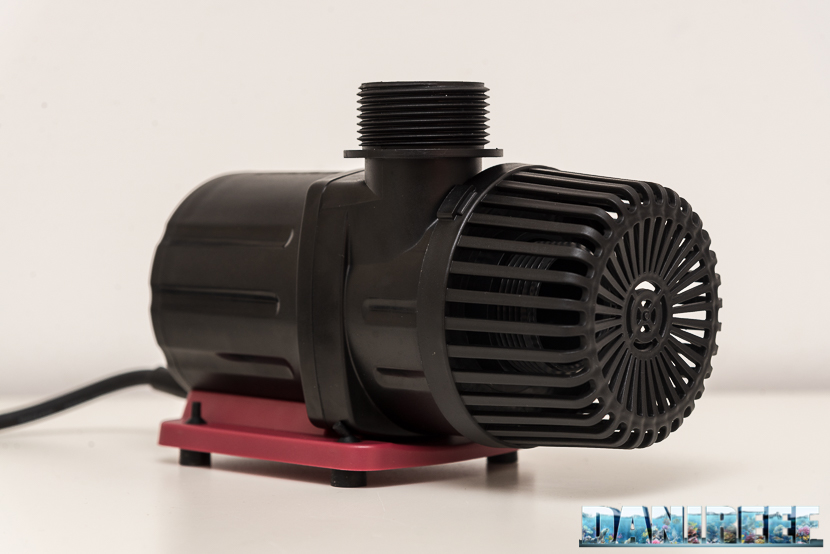
![]() Hydraulic head and energy consumption better than declared
Hydraulic head and energy consumption better than declared![]() Simple to adjust on six available levels
Simple to adjust on six available levels![]() Solid and well built
Solid and well built![]() Silent
Silent![]() Amazing quality/price relationship
Amazing quality/price relationship ![]() Not excessive price
Not excessive price
CONTRO
![]() Flow rate below declared
Flow rate below declared![]() Too easy regulation
Too easy regulation
Disclaimer: We thank Hydor for giving us the Hydor Seltz D6000 pump for this review.








